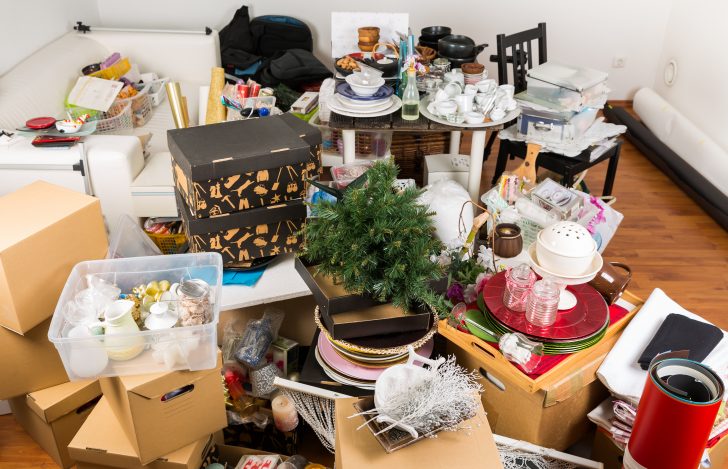Can a Tenant be Evicted for Hoarding?

21Sep
Can a Tenant be Evicted for Hoarding?
In the landlord and tenant relationship, both parties have their own responsibilities and duties. While a landlord is required to maintain a rental that’s suitable for tenants to live in, tenants must also fulfill their duties and ensure that they take care of the unit properly.
One of the main duties that tenants have is to keep the rental in a clean, sanitary, and safe manner. Specifically, this means getting rid of trash properly, cleaning plumbing, reporting utility fixtures, and not causing damage to the property or using the property in a way that it was not intended to be used. Depending on the nature and scale of the hoarding, it can be seen as a breach of this important tenant duty.
Definition of Hoarding
It may be difficult to actually distinguish between being a messy tenant and a hoarder. However, the difference is meaningful; hoarding is considered an official psychiatric disorder per the American Psychiatric Association’s Diagnostic and Statistical Manual. Here are some characteristics that define hoarding:
- Persistent difficulty parting with/discarding objects, regardless of actual value
- The difficulty in parting with objects is because of a perceived need to save and the distress associated with the discarding of the objects
- The symptoms produce an end result of accumulation of possessions that congest and clutter active living areas and substantially compromise their intended use
What Happens with the Discovery of a Hoarding Tenant?
Although hoarding is at odds with the tenant’s duty to keep a clean and sanitary rental, the tenant usually can’t be evicted for hoarding per se. However, some of the hoarding behavior could be a nuisance to other tenants if the hoarding substantially interferes with tenants using their property. For instance, if it leads to clutter in common areas or results in water intrusion in nearby units, or creates a pest infestation that invades the building.
Because hoarding is considered a disability, it makes the issue more complex. A tenant who suffers from this could request a “reasonable accommodation” to give them full use and equal enjoyment of their rental unit, but due to the nature of the disorder, it’s unlikely that they would. However, it could be a step for the landlord to take before attempting to evict a tenant when this tenant whose mental disability is triggering them has violated their tenant duties.
Possible Accommodations
The landlord would have to meet this requirement of providing an accommodation for disabled tenants if it’s reasonable and can’t be an undue burden on the landlord, such as a major change to the property. Here are some possibilities:
- Recognizing health and safety issues that need to be dealt with in the apartment
- Creating goals and timelines to address the health and safety issues
- Establishing dates for re-inspection of the apartment to observe compliance
- Compiling the goals, timelines, and re-inspections into writing and having tenant sign it
- Providing a list of resources that can help hoarders
Resident hoarding can create major health and safety problems, including risk of fire, mold issues, and pest infestations. Whether you’ve self-identified your hoarding problem and want an accommodation or you’re a tenant in the building who believes another tenant’s hoarding is interfering with your tenants’ rights, the issue of hoarding is a very complicated one.
Related Posts You Also May Like
Get Started
For more information or to discuss your legal situation, call us today at (415) 649-6203 for a phone consultation or submit an inquiry below. Please note our firm can only assist tenants residing in San Francisco, Oakland & Berkeley.





